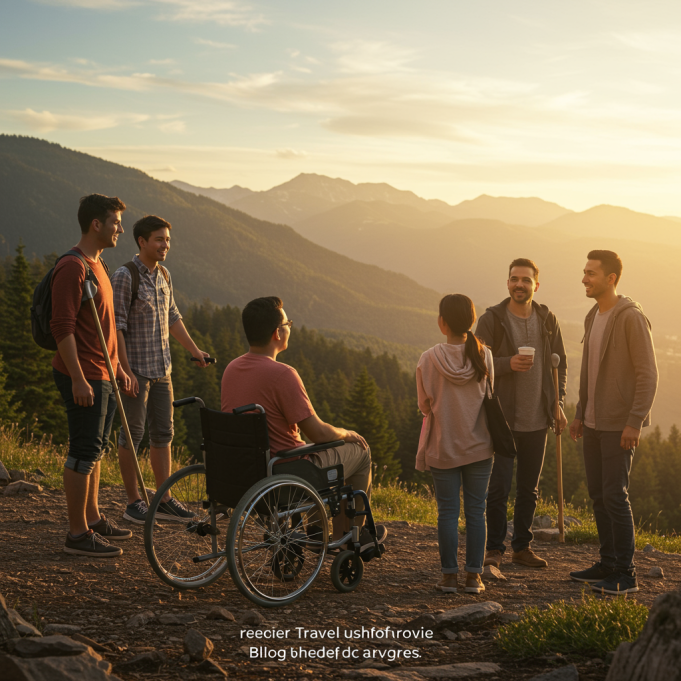Introduction
Travel is for everyone. In 2024, the push for inclusive, accessible adventures has never been stronger. Whether you use a wheelchair, have limited mobility, are neurodiverse, or simply want a more accommodating experience, accessible travel opens doors to unforgettable moments. In this guide, we cover top disability-friendly destinations, essential planning tips, gear recommendations, and resources to help you embark on an empowering journey this year.
Why Accessible Travel Matters
Travel enriches lives, broadens perspectives, and fosters connection. Yet many destinations and services aren’t designed with everyone in mind. Prioritizing accessibility ensures that people of all abilities can:
- Explore renowned landmarks and hidden gems
- Engage fully in local culture and activities
- Travel independently, confidently, and safely
By championing inclusive accommodations, transportation, and experiences, we build a travel industry that celebrates diversity and makes every trip unforgettable.
Top Accessible Destinations for 2024
From bustling cities to serene landscapes, these locations lead the way in accessibility improvements and inclusive offerings.
1. Barcelona, Spain
Barcelona boasts curb cuts on most sidewalks, accessible ramps at major museums like the Museu Picasso, and beach wheelchairs available at Barceloneta. The city’s metro system features elevators and dedicated spaces on trains.
2. Vancouver, Canada
Known for its wheelchair-friendly seawall, ramp-equipped attractions, and accessible gondola at Grouse Mountain, Vancouver blends urban comforts with breathtaking nature. Many hotels offer roll-in showers and lowered sinks.
3. Sydney, Australia
Sydney Opera House provides guided tours for visitors with mobility challenges, complete with tactile models and captioned video displays. Accessible ferries, curb ramps, and adapted tours at the Royal Botanic Garden enhance inclusivity.
4. Reykjavik, Iceland
This compact capital has smooth sidewalks, wheelchair-friendly buses, and many geothermal spas with accessible pools. Tour operators offer modified vehicles for glacier hikes and whale-watching cruises.
Planning Tips for Inclusive Adventures
Preparation is key to a smooth, enjoyable trip. Here’s how to plan effectively:
- Research accommodations: Look for hotels with roll-in showers, grab bars, adjustable beds, and elevator access. Call ahead to confirm room features.
- Book adaptive transportation: Seek airlines, trains, and buses with accessible boarding options. Notify carriers at least 48 hours before departure to arrange assistance.
- Coordinate guided tours: Partner with local operators who specialize in accessible excursions. They provide trained staff, adaptive equipment, and flexible itineraries.
- Plan rest breaks: Factor in extra time for transfers, restroom stops, and meal breaks. A relaxed schedule reduces stress and fatigue.
- Pack documentation: Carry medical letters, assistive device prescriptions, and any relevant disability identification to ease airport security and customs checks.
Essential Travel Gear and Resources
The right equipment and support can transform your journey. Consider these must-haves and information sources:
- Lightweight travel wheelchair: Look for folding models with adjustable seating to fit car trunks and narrow pathways.
- Portable ramps and grab bars: Compact ramps help you navigate thresholds, curbs, and uneven terrain. Suction-mounted grab bars add safety in unfamiliar restrooms.
- Noise-canceling headphones: Ideal for travelers with sensory sensitivities, they reduce background noise during flights and transfers.
- Accessible travel apps: Use tools like Wheelmap, AccessNow, and Aira for real-time information on venue accessibility and remote assistance.
- Support networks: Join online communities such as the Disabled Travel Club and Access Adventurers on social media for tips, reviews, and camaraderie.
Overcoming Common Challenges
Even with careful planning, unexpected obstacles can arise. Here’s how to handle them:
- Last-minute accessibility issues: If your hotel room isn’t suitable on arrival, ask to speak with a manager immediately. Document features that don’t meet your needs and request an alternate room or compensation.
- Communication barriers: Carry printed cards explaining your requirements in the local language. Use translation apps that support text and audio input.
- Medical emergencies: Research local hospitals and pharmacies at your destination. Keep emergency contacts programmed in your phone and share your itinerary with a trusted friend.
- Transportation delays: Build buffer time into connections. If you miss a transfer, reach out to your carrier’s accessibility desk for expedited rebooking.
Conclusion
Accessible travel in 2024 empowers adventurers of all abilities to explore the world without limits. By selecting inclusive destinations, equipping yourself with adaptive gear, and partnering with knowledgeable operators, you can craft a seamless, enriching experience. Remember: the journey is yours to define—plan thoughtfully, advocate confidently, and embrace every moment of your inclusive adventure.








